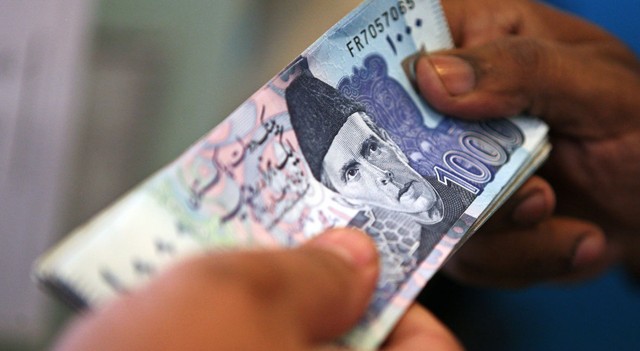Homicide Cases In Pakistan Need Uniformity In Law
Homicide in the Islamic Sharia law, forming part of penal law deals with a multifarious system, which is unique in its nature. The law lies between tort and criminal law, due to the concepts of financial compensation and retaliation. Even under Islamic law, the homicide laws are governed through a unique and separate category of offences called ‘Qisas’ or retaliation due to Islam allowing private prosecution, which can be undertaken by the victim’s own family. Under the applicable law of Pakistan, murder, manslaughter and grievous bodily harm are traditionally governed under the same regime. However, now the situation has slightly changed due to the enactment of the Anti-terrorism Act with some recent amendments[1] but it is not very clear what really falls under the ambit of terrorism. Unfortunately, treating homicide as a tort comes with a high price and grave injustices.
The concept of blood money (Diyat) is surely based on the principles of Islamic Sharia law but the investigation, witness protection and the bargaining power of parties is extremely weak in Pakistan, which mostly leads to the occurrence of mass injustices.
Under Pakistan Penal Code, homicide is covered under section 300 to 331.[2] However, the most interesting section out of all the sections is section 309, which allows the Wali, legal heir of the deceased to waive off the right of retaliation based on a mutual agreement reached on financial compensation.
There is a plethora of case law one can site to identify this inequity. Here are some examples; Hanif v. The State[3], Here the defendant, Mr. Hanif murdered his wife’s sister since he thought that she was going to marry a man he wished his sister to marry. Hanif went scot-free after his wife and her parents exonerated him. Husbands guilty of murdering their wives are let go since the court believes that minors would be deprived of having a father. In Ijaz v. The State[4], Mr. Ahmed who had murdered his sister for failing to iron his clothes by shooting her multiple times, was sentenced to 14 years by the trial court under Fasad Fil Arz (pardon in the name of Allah). The High Court acquitted him at the appeals stage since compromise had been struck between the offender and the legal heirs (his own family members). In 1997 PCrLJ 247, Mansoor Ali broke into the house of his uncle to wipe out his family so he could become the sole heir to his uncle’s wealth. He shot dead five family members while two others were injured. He was acquitted after a compromise deed was produced before the court signed by the heir who had, by that time, lost her sanity. The case of Samia Sarwar, belonging to an urban elite educated family tells us how parents systematically murdered their own daughter in the name of ‘honour’ for wishing to divorce her husband. Parents and siblings, already having lost a family member, do not wish to be separated from one another. Then there are more prominent recent cases like Raymond Davis murder case where a foreign national killed two young boys in Lahore and the infamous Shazaib murder case where the son of a very influential landlord murdered a young boy over a petty argument. In both these above mentioned cases the offender had strong political and influential backing and there was almost no witness protection for the families of victims and as expected a compromise was reached.
After the enactment and ruling of the 21st amendment of the Constitution of Pakistan regarding Military Courts, there is a new trend that the judiciary can try homicide cases in the Anti Terrorism court (ATC). Firstly, because here the state is making the case and thus there can be no financial or social compromise. Secondly, there are immensely less evidentiary requirements for prosecution under this act. However, this judicial activism of trying cases in ATC is also perilous. The court in the matter of Muhammad Yousaf v State[5] stated; “-In order to decide whether an offence was triable under the Anti-Terrorism Act, 1997 or not, the courts had to see whether the act had a tendency to create a sense of fear and insecurity in the minds of people or a section of society, such an act might not necessarily have taken place within the view of general public”. This definition is too wide and gives the courts an extensive discretion.
There are two easy elucidations for this complex issue. If we are to follow the Sharia system then new legislation is required with Pakistan Penal Code sections on homicide for witness protection along with victim’s family protection, statutory bracket for lowest compensation, eliminating the element of duress and improvement in forensic and circumstantial evidencing. After all the jurisprudence behind Islamic Sharia law was to provide justice, not the protection of wealthy and influential people!
The other solution is to enact new legislation to make murder an offence against the state rather than an individual. Whereas manslaughter and grievous bodily harm can be left where Qisas and Diyat are applied. These measures will allow the criminal justice system to work more efficiently to provide justice to the public and the judges would not have to stretch cases into ATC.
—–
[1] THE ANTI-TERRORISM ACT, 1997 ACT NO. XXVII OF 199 (Amendments 2014)
[2] Pakistan Penal Code (Act XLV of 1860)
[3] 1993 PCrLJ 1795, Hanif v. State
[4] 2000 PCrLJ 116, Ijaz v. The State
[5] 2014 PLD 644 MUHAMMAD YOUSAF v State
The views expressed in this article are those of the author and do not necessarily represent the views of any organization with which he might be associated.


